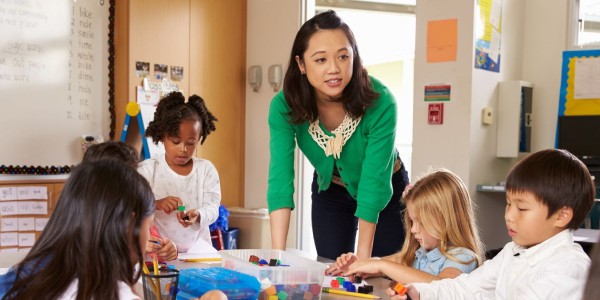Significance of a Diploma in Early Childhood Learning
All major learning abilities and emotional health of children develop during the early childhood stage. Workers in early childhood require specialized training because such education ensures they offer optimal care and teaching to young children. A diploma in early childhood establishes all necessary knowledge for someone aiming for a professional career in this educational field. The specialized program guides professionals in learning appropriate methods they need to develop children’s academic competencies alongside social and emotional skills.
The diploma education curriculum explores fundamental fields of child psychology as well as teaching approaches and handling challenging student behaviors. Professionals become capable of designing interesting learning spaces which promote the healthy development of early children through their acquired expertise. Early childhood education demands steady growth therefore establishing itself as a beneficial career for people who desire to help children because of their passion.
Important Skills Gained Over Early Childhood Education Training
Studying early childhood education through diploma programs bestows individuals with fundamental skills which prove vital for working with pre-schoolers. These include:
- Child Development Knowledge
Student development phases serve as fundamental knowledge for educators to develop teaching approaches which fit the specific requirements of individual children.
- Classroom and Behavior Management
Working as a teacher who handles classes of young children demands superior patience and creative thinking along with professional discipline methods. Educators gain skills for creating productive classrooms that help them support children through behavioral adjustments.
- Creative Teaching Techniques
The natural development of children reaches its peak when they engage in hands-on activities along with playful interactions. The educational curriculum for early childhood teaching demonstrates how educators can develop their teaching methods using play-based learning and storytelling and interactive classroom activities.
- Health and Safety Awareness
The protection and welfare of early childhood students remains the most significant priority throughout early childhood education. Education professionals learn about emergency procedures as well as child dietary practices and basic medical care techniques.
- Communication and Relationship-Building Skills
Training in early childhood education requires developers to master communication skills that support their work with children and their parents. The training program helps teachers to establish ethical bonds with parents alongside offering developmental information.
Various Job Opportunities
- Preschool Teacher
- Childcare Center Supervisor
- Special Education Assistant
- Early Learning Program Coordinator
- Private Tutor for Young Children
The Role of a Caregiver in Early Childhood Development
Young children need support for their emotional health alongside their physical health which caregivers provide as their main responsibility. Their key duties entail management of a protected setting while offering support to daily routines and upholding food security approach.
The training of professional caregivers in Saudi Arabia has evolved into essential practice since families require trained child caretakers for their children. The caregiver course in Saudi Arabia provides necessary training about first aid procedures together with safety protocols for children alongside methods for emotional support. Childcare service quality benefits from these programs which aid in training caregivers to perform professional child care.
Appropriate education and training allow educators and caregivers to help children develop at an early stage leading to solid success foundations in their future lives.


